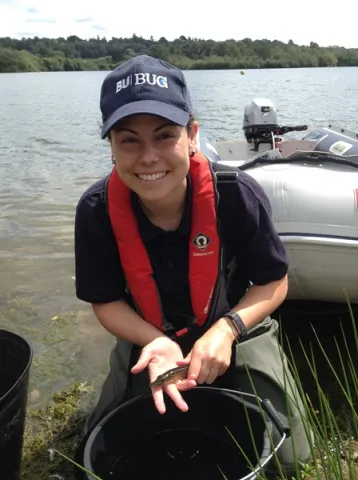About the project
This PhD explores how floods reshape river habitats and drive the spread of invasive species. Using hydrological modelling, experimental ecology and individual-based modelling, the project links flood dynamics with invasion pathways in UK and South African rivers, generating evidence to inform climate-resilient flood and invasive species management.
Flooding is one of the most urgent environmental challenges of our time, reshaping landscapes and communities while also creating opportunities for invasive species to spread. Invasive non-native species, such as signal crayfish, are already a major threat to biodiversity and ecosystem health, yet we still know little about how changing flood regimes influence their establishment and impact. Understanding these links is critical for building resilient rivers under climate change.
This PhD project will investigate how floods alter river habitats and how invasive species exploit these changes. Working across contrasting systems in the UK and South Africa, you will explore questions such as:
- Do floods create refuges that invaders can occupy?
- How do barriers and flow regulation interact with floods to accelerate invasions?
- Can targeted changes to flow or barrier management reduce invasion risk?
To address these questions, you will combine several approaches:
- hydrodynamic and sediment transport modelling to simulate flood events
- fieldwork in UK rivers to test model predictions
- experimental ecology using flume facilities to track how invasive species respond to pulsed floods.
These results will feed into individual-based models, linking animal behaviour with flood-driven habitat dynamics.
Your findings will help identify practical management options that balance flood protection with biodiversity conservation, providing evidence directly relevant to river managers and conservation agencies.
You will be embedded in Dr Dominguez Almela’s lab group (University of Southampton), broaden your expertise through engagement with Dr South’s lab group (University of Leeds), and collaborate closely with partners including Natural England and South African National Parks, gaining both international and interdisciplinary research experience.
Supervisors
As well as Victoria Dominguez Almela and Steve Darby from the University of Southampton, you will also receive supervision from:
- Josie South from the University of Leeds.
- Dumisani Khosa from the South African National Parks (SANParks).
- Magnus Axelsson from the Natural England.
Please contact the lead supervisor if you require further information about the project.
References
Dominguez Almela, V., Palmer, S.C., Gillingham, P.K., Travis, J.M. and Britton, J.R., 2020. Integrating an individual-based model with approximate Bayesian computation to predict the invasion of a freshwater fish provides insights into dispersal and range expansion dynamics. Biological Invasions, 22(4), pp.1461-1480.
Du, T., Lee, H., Bui., D.D., Graham, L.P., Darby, S.E., Pechlivanidis, I.G., Leyland, J., Biswas, N.K., Choi, G., Batelaan, O., Bui, T.T.P., Do, S.K., Tran, T.V., Nguyen. H.T. and Hwang, E. 2022. Streamflow prediction in highly regulated, transboundary watersheds using multi-basin modelling and remote sensing imagery. Water Resources Research, 58, e2021WR031191.
Matthew Harwood, Andrew Bray, Paul D. Stebbing, Alison M. Dunn, Josie South (in review). A multi-method approach to assessing barrier effectiveness in preventing the spread of invasive Signal Crayfish (Pacifastacus leniusculus). River research and applications.

